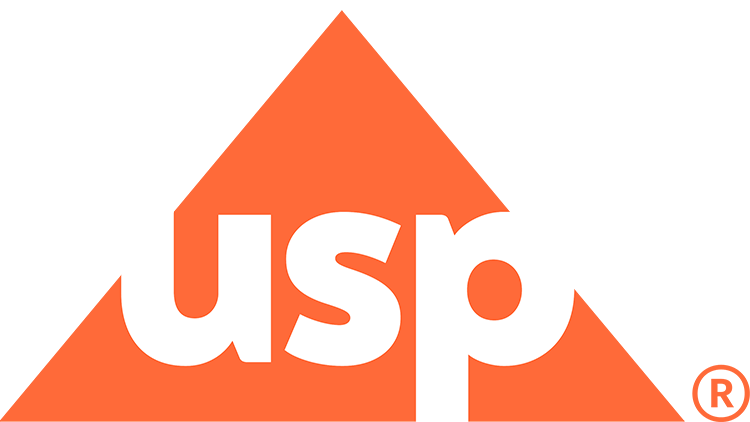
Pharmacy Has Rediscovered its Roots, Bringing its Renewed, Growing Prominence in Health Care, Says USP CEO

Pharmacy Times® interviewed the CEO of US Pharmacopeia (USP) Ronald Piervincenzi, PhD, to discuss USP’s history, the role of the pharmacist both in that history and in USP’s work today, and USP’s outlook on the future of pharmacy.
Pharmacy Times® interviewed the CEO of US Pharmacopeia (USP) Ronald Piervincenzi, PhD, to discuss USP’s history, the role of the pharmacist both in that history and in USP’s work today, and USP’s outlook on the future of pharmacy.
This discussion also kicks off the start to a new video series Pharmacy Times®and USP have created together to highlight USP’s work to support pharmacists over its 200-year history and to discuss USP’s perspective on timely and topical issues in the field.
In this first video of the series, Piervincenzi explains that USP was founded due to poor quality medicines being dumped on the shores of the United States early in the existence of the country.
“A lot of those poor quality medicines were coming from England, and some were famously, if you look at the historical documents, labeled ‘good enough for the United States’ or ‘good enough for the colonies,’ and in some cases they literally said that on the label,” Piervincenzi said. “From that arose the idea of something that would define what ‘good’ looks like for the United States.”
Piervincenzi noted that the move to establish an organization that would make these kinds of national decisions was an important step for 2 reasons: The first being that there had never been a national pharmacopoeia before anywhere in the world, and the second being that there wasn't much “national” about the United States yet, as it was still mostly a loose confederation of states.
In light of this, the founding of USP was acknowledged by those involved as being an important step.
“It was considered a big deal,” Piervincenzi said. “The 11 founders, 3 of whom were in or recently had been in US Congress, including a senator, conducted the founding in the US senate chamber to signify something that was national and of importance.”
Piervincenzi explained further that since the time of USP’s founding in 1820, the role of the pharmacist in USP's work has remained integral to the very structure and existence of the organization.
“We've seen in USP’s history, if you look at medicine through our timeline, that it went from being customized for each patient concocted in the office or in the pharmacy, through to industrialization into large pharmaceutical companies run by pharmaceutical scientists and pharmacists,” Piervincenzi said. “It then continued to evolve, and pharmacy became a broad range, including everything from community pharmacies to clinical pharmacists, but also an evolution of pharmaceutical scientists into sub-specialties.”
In this way, the field no longer required the broad knowledge of all pharmaceutical sciences, and instead became more specialized and specific. However, Piervincenzi noted that today, there has been a shift to return to some of the original elements present in the very earliest days of pharmacy in the country.
“What is personalized medicine or 3D printing of a tablet customized to your needs, your [active pharmaceutical ingredients] quantity, etc? Well, it looks a bit like the earliest days,” Piervincenzi said. “We apply labels like compounding that maybe mean something in one setting or another, but really, think about it—we didn't move away so much, but we've kind of rediscovered the value of some of this, and I believe that's why you see the role of the pharmacist coming into a prominence that it hasn't seen in quite some time.”
In terms of outlook on the future of pharmacy, Piervincenzi feels optimistic.
“I'm bullish, not just about pharmacy, but on the increasing role of pharmacy. But it's not without its challenges to step up,” Piervincenzi said. “I think I see some of it, more or less, through the pandemic lens—pharmacy being a part of care delivery has been a topic that has become a reality. It's very rare you could see something go from a discussion for so long and suddenly become such a vivid reality. How do you seize that moment?”
Piervincenzi noted that although the world at large would benefit from pharmacy’s move to greater prominence in health care, this is especially the case for the United States.
“I think in other parts of the world, we see pharmacy play a more prominent role in care than in the United States, and I think the United States has made steps that are kind of obvious in other places maybe, but were less obvious here,” Piervincenzi said.
Additionally, due to cutting-edge developments that are being pushed to the forefront in digital and personalized medicine, pharmacy will be the only environment that can manage the actual delivery of such patient-specific medicine at scale.
“I'm not just talking about the actual manufacturing of medicines on the spot, but that level of care is only possible for pharmacy at a scale close enough to the patients to be able to make that really work,” Piervincenzi said. “It's one thing to have 10,000 patients on one medicine, but what if we have 500 different kinds of therapeutic solutions that are all being personalized for 300 million people. That's the plan that we're working towards, and no one except pharmacy has the reach, the volume, and the accessibility to make that work. So, I'm excited for that, but it will look quite different than how most pharmacists interact with patients today.”
Newsletter
Stay informed on drug updates, treatment guidelines, and pharmacy practice trends—subscribe to Pharmacy Times for weekly clinical insights.


























